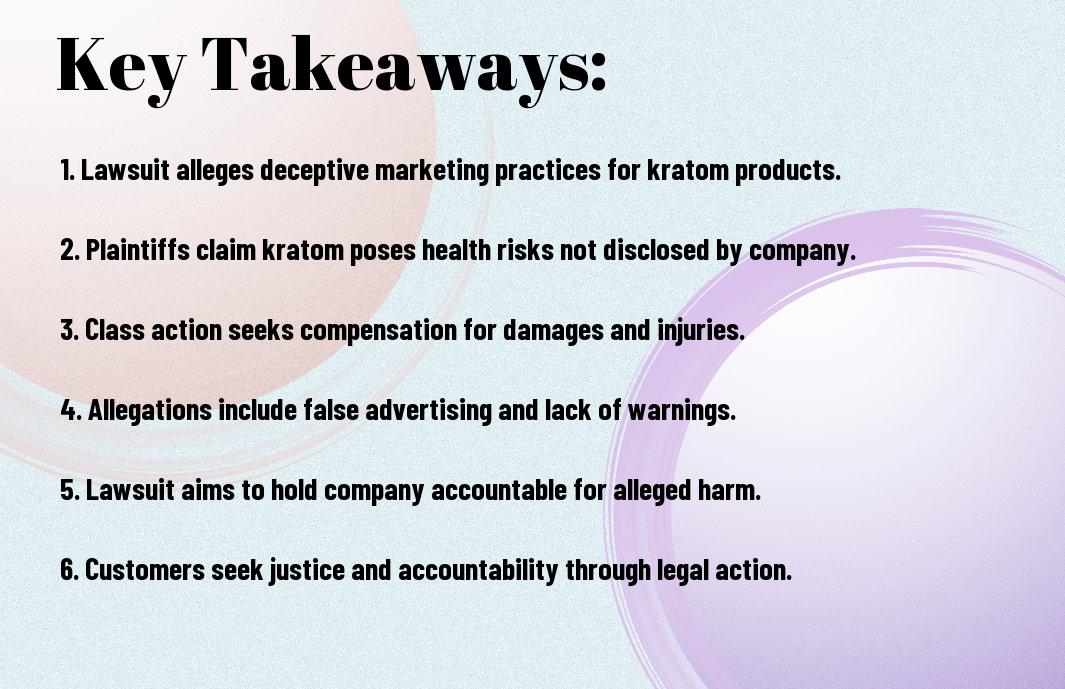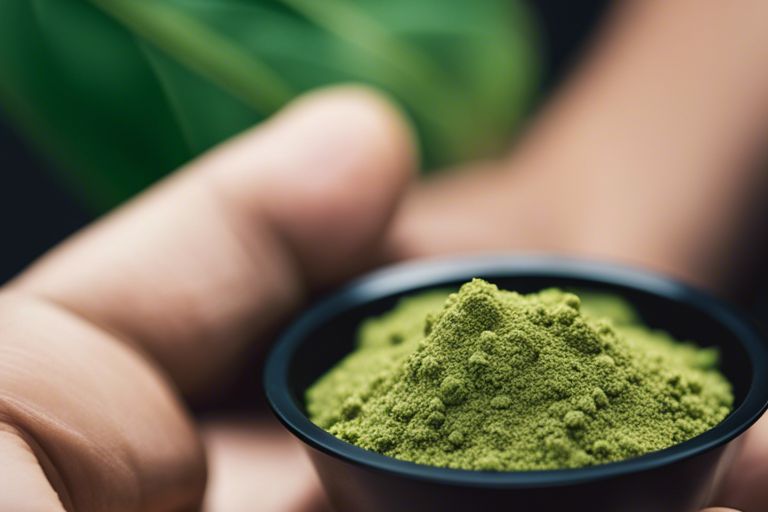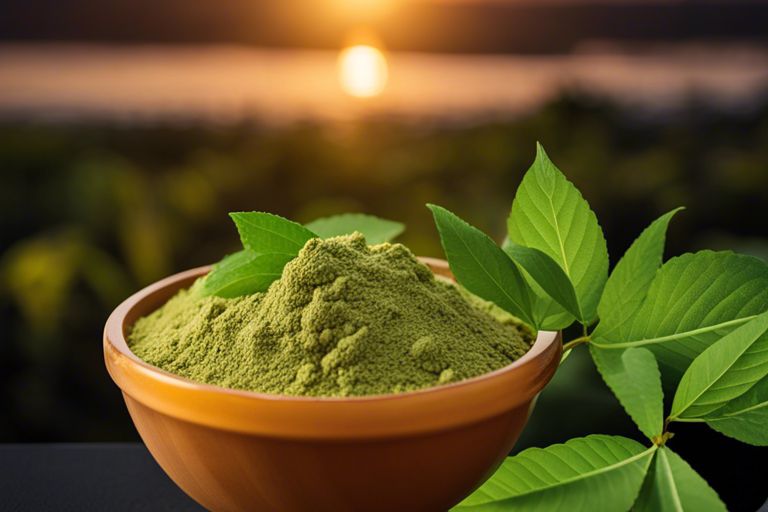Lawsuit filed against kratom manufacturers is shaking up the herbal supplement industry. Allegations of misleading claims, contamination, and health risks have surfaced, sparking a nationwide concern. As the legal battle unfolds, it reveals a deeper look into the regulation and safety of kratom products. Stay informed as we probe into the complexities of this class action lawsuit and its potential implications.
Key Takeaways:
- Kratom Lawsuit: A class action lawsuit has been filed against kratom distributors alleging false advertising and misleading claims.
- Claims: The lawsuit alleges that the defendants misrepresented the effects of kratom, including its ability to treat pain and opioid withdrawal symptoms.
- Legal Action: The plaintiffs are seeking damages and are pushing for stricter regulations on kratom products to ensure consumer safety.

Background on Kratom
Before exploring into the details of the Feel Free Class Action lawsuit, it is crucial to understand the background of kratom, a plant that has sparked controversy and legal battles in recent years.
What is Kratom?
An increasingly popular herbal supplement, kratom comes from the leaves of the Mitragyna speciosa tree native to Southeast Asia. Known for its stimulant and opioid-like effects, kratom is often used to manage pain, boost energy, and elevate mood.
History of Kratom Use
An ancient botanical substance, kratom has been used for centuries in traditional medicine practices in its native regions. However, in recent years, it has gained traction in Western countries as an alternative remedy for various ailments.
Kratom’s controversial status stems from its potential for addiction and abuse, as well as its healing properties that proponents argue can provide relief from chronic pain, anxiety, and depression.
The Rise of Kratom-Related Lawsuits
Early Reports of Adverse Effects
Little did users of kratom know that their seemingly harmless choice to consume this herbal supplement would eventually lead to a surge in legal action. The early reports of adverse effects began to trickle in, with users experiencing symptoms ranging from dizziness and nausea to more severe issues like liver damage and respiratory distress. These alarming incidents signified a turning point in the perception of kratom’s safety and ignited a chain of events that would ultimately lead to the filing of class-action lawsuits.
Growing Concerns about Safety and Regulation
With the rise in kratom’s popularity, so too grew the concerns surrounding its safety and regulation. Any substance that elicits such a wide range of effects, both positive and negative, cannot escape scrutiny for long. As more individuals turned to kratom for its supposed benefits, regulators and health authorities scrambled to keep pace with the evolving landscape of this controversial herb.
Effects like addiction potential and adverse reactions became focal points in the debate over kratom’s legality and accessibility. The lack of standardized dosing guidelines and quality control measures only added fuel to the fire, leaving consumers vulnerable to the unpredictable nature of kratom and its potential risks.
The Class Action Lawsuit
Who is Involved?
Class action lawsuits typically involve a group of individuals who have been affected in a similar manner by a product or company. In the case of the kratom class action lawsuit, individuals who have used kratom products and suffered harm or negative effects are coming together to seek legal recourse. These individuals could range from regular consumers of kratom to those who have experienced severe health issues due to its consumption.
Allegations and Claims
Class action lawsuits against kratom manufacturers often revolve around serious health concerns related to the product. This could include allegations that the manufacturers failed to properly warn consumers about potential side effects or dangers associated with kratom use. Additionally, claims may include misleading marketing practices that downplay the risks of kratom consumption, leading to unsuspecting individuals using the product without full knowledge of its potential harm.
A successful class action lawsuit could result in compensation for affected individuals and potentially lead to stricter regulations or warnings regarding the sale and use of kratom products in the future.

Key Issues in the Lawsuit
Misleading Marketing and Labeling
On the surface, the kratom class action lawsuit revolves around allegations of misleading marketing and labeling practices by kratom manufacturers. Manufacturers have been accused of overstating the benefits of kratom while downplaying the potential risks and side effects associated with its consumption. This misrepresentation has led consumers to believe that kratom is a safe and effective product, potentially putting their health at risk.
Failure to Warn Consumers
Any failure to provide adequate warnings about the risks associated with kratom consumption can be detrimental to consumers. Despite known potential side effects such as liver damage, respiratory depression, and addiction, some kratom manufacturers allegedly failed to adequately warn consumers about these dangers. This lack of transparency and disclosure raises serious concerns about consumer safety.
To further compound the issue, some manufacturers may have actively concealed information about the potential risks of kratom consumption, putting profits ahead of consumer well-being. This disregard for consumer safety underscores the gravity of the allegations in the kratom class action lawsuit.
Negligence and Breach of Duty
For consumers, one of the most concerning aspects of the lawsuit involves claims of negligence and breach of duty by kratom manufacturers. Manufacturers have a legal responsibility to ensure that their products are safe for consumption and to provide clear and accurate information about any potential risks. Allegations of negligence suggest that these duties may not have been fulfilled, leading to harm and injury among consumers.
These claims of negligence and breach of duty raise questions about the ethical standards and practices of kratom manufacturers, highlighting the need for greater accountability and transparency in the industry. The outcome of the lawsuit could have significant implications for consumer protection and product regulation moving forward.
Evidence and Expert Testimony
After Kratom at the center of a spate of wrongful death lawsuits, the legal battle surrounding the herbal supplement has intensified. Evidence presented in the kratom class action lawsuit includes scientific studies on kratom’s effects and testimonies from affected individuals.
Scientific Studies on Kratom’s Effects
With ongoing research into kratom’s properties, scientists have uncovered both potential benefits and risks associated with its consumption. Some studies suggest that kratom may have pain-relieving properties similar to opioids but with less risk of respiratory depression. However, concerns have been raised about kratom’s potential for addiction and abuse, leading to regulatory scrutiny.
Testimonies from Affected Individuals
Studies have shown that testimonies from individuals who have experienced adverse effects from kratom consumption play a crucial role in the legal proceedings. These testimonies provide first-hand accounts of the impact of kratom on users, detailing symptoms such as severe withdrawal effects and addiction potential. The emotional and physical toll of kratom-related issues is a key factor in the class action lawsuit.
Effects:
The testimonies from affected individuals highlight the devastating consequences of kratom use, shedding light on the need for regulation and consumer awareness. These firsthand accounts serve as compelling evidence of the potential dangers associated with kratom consumption.
What Are the Grounds for the Kratom Class Action Lawsuit?
The grounds for the Kratom Class Action Lawsuit involve alleged false advertising and misleading claims associated with the use of save with flavourz kratom promo. Plaintiffs argue that the promotional offer did not accurately reflect the product’s potential risks and potential side effects. This has led to a legal challenge that seeks compensation for affected individuals.
Legal Implications and Ramifications
Potential Consequences for Kratom Manufacturers
For kratom manufacturers, a class action lawsuit could have significant consequences. If found liable for any harm caused by their products, these companies could face hefty financial penalties and damages. Additionally, a negative ruling could tarnish their reputation in the industry, leading to loss of consumer trust and decreased sales.
Impact on the Kratom Industry as a Whole
To assess the impact on the kratom industry as a whole, one must consider the ripple effects of a class action lawsuit. Such legal actions can set precedents and lead to stricter regulations on kratom products, affecting all manufacturers and distributors in the market. This could result in decreased availability of kratom products, higher production costs, and a shift in consumer perception of the herb.
Impact: The repercussions of a class action lawsuit could reshape the kratom industry landscape, forcing companies to adapt to new legal frameworks and consumer demands.
Conclusion
From above, it is evident that the issue of kratom class action lawsuits is a complex and contentious one. The ongoing legal battles surrounding the herb highlight the need for further research and regulation to ensure the safety and well-being of consumers. As more information comes to light, it is crucial for individuals to stay informed and advocate for responsible practices within the herbal supplement industry.
As we navigate the evolving landscape of kratom litigation, it is important to approach the topic with a critical eye and a commitment to seeking out the truth. By staying informed and engaging in productive discussions, we can work towards creating a more transparent and accountable system for regulating kratom and other herbal supplements.
FAQ
Q: What is a class action lawsuit related to kratom?
A: A class action lawsuit related to kratom is a legal action taken by a group of people who have similar claims against a kratom manufacturer, distributor, or retailer.
Q: What are the common reasons for filing a kratom class action lawsuit?
A: Common reasons for filing a kratom class action lawsuit may include false advertising, product contamination, misleading labeling, or health risks associated with the product.
Q: How can I join a kratom class action lawsuit?
A: To join a kratom class action lawsuit, you typically need to meet the criteria set by the court or law firm leading the legal action. This may include being a consumer of the kratom product in question during a specific time frame.
Q: What should I do if I have been affected by a kratom-related issue?
A: If you have been affected by a kratom-related issue, such as adverse health effects or false advertising claims, you may consider contacting a lawyer specializing in product liability or class action lawsuits for guidance on your legal options.
Q: What outcomes can result from a successful kratom class action lawsuit?
A: If a kratom class action lawsuit is successful, outcomes may include financial compensation for affected individuals, changes in labeling or advertising practices by the kratom industry, or increased awareness of the potential risks associated with kratom consumption.










